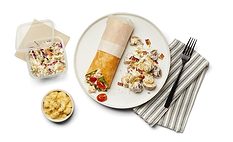
Refrigerated/Frozen
Refrigerated foods are temperature control dependent and remain fresh between 35 °F and 38°F (1.7 °C and 3.3 °C) for a specified length of time. Frozen foods are prepared or processed fresh and then frozen for future consumption.
Articles
More ArticlesNever miss the latest news and trends driving the food safety industry
eNewsletter | Website | eMagazine
JOIN TODAY!Copyright ©2025. All Rights Reserved BNP Media.
Design, CMS, Hosting & Web Development :: ePublishing


